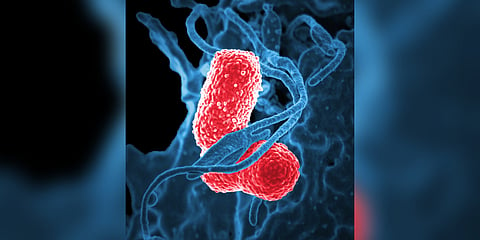

Fighting disease-causing bacteria becomes more difficult when antibiotics stop working. People with pre-existing conditions in particular can carry resistant germs and suffer from repeated infections for years, according to a study by the University of Basel and University Hospital Basel.
Pneumonia, urinary tract infections, sepsis: diseases like these can become fatal without antibiotics. Some bacteria have developed the ability to break down beta-lactam antibiotics like penicillins and cephalosporins, making them ineffective. Once a patient’s body has been colonised by these resistant bacteria, they can persist for a long time, reports Professor Sarah Tschudin Sutter’s research group in the scientific journal Nature Communications.
The team at the Department of Clinical Research of the University of Basel and University Hospital Basel analysed multiple samples taken from over 70 individuals over a period of 10 years. The researchers looked at a much longer period of time than previous studies and focused on older people with pre-existing conditions. Their key question: whether and how resistant Klebsiella pneumoniae and Escherichia coli bacteria in the body change over this long period and how they differ in various parts of the body.
DNA analysis indicates that the bacteria initially adapt quite quickly to the conditions in the colonised parts of the body, but undergo few genetic changes thereafter. The resistant bacteria could still be detected in the patients up to nine years later. “These patients not only repeatedly become ill themselves, they also act as a source of infection for other people -- a reservoir for these pathogens,” says Dr Lisandra Aguilar Bultet, the study’s lead author.
“This is crucial information for choosing a treatment,” explains Professor Tschudin Sutter. These findings about the bacterial genetic diversity expected to develop in individual patients over time are a valuable basis for future studies to analyse factors found in both bacteria and patients that correlate with duration of colonisation and progression from colonisation to infection.
(Source: University of Basel/ScienceDaily)